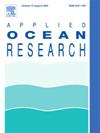船舶性能分析中数据处理的综合综述
IF 4.4
2区 工程技术
Q1 ENGINEERING, OCEAN
引用次数: 0
摘要
可靠的船舶性能分析可以帮助防止错误的导航决策,并能够更准确地估计燃料消耗。支持脱碳目标和遵守日益严格的海事法规将取决于这些能力。虽然分析工具和数据收集已经取得了长足的进步,但船舶性能数据的处理和管理仍然受到其复杂性和固有缺陷的不断挑战。尽管它很重要,但关于如何处理这一领域的数据的系统研究仍然很少。本文介绍了旨在解决船舶性能分析中数据相关挑战的方法的全面审查。基于2014年至2024年间发表的文献,作者确定了AIS、车载传感器和正午报告等主要数据源,并检查了常见的质量问题。随后,关键的处理技术,包括数据同步、缺失值输入、数据清理和不确定性管理,在其应用、有效性和局限性方面进行了评估。该审查还强调了由于缺乏一致的统一处理管道而造成的重大差距。解决这些挑战不仅需要改进方法,还需要共同努力建立基准数据集和最佳实践。这些研究工作对于实现可靠的数据驱动决策和可持续的船舶运营至关重要。本文章由计算机程序翻译,如有差异,请以英文原文为准。
A comprehensive review of data processing for ship performance analysis
Reliable ship performance analysis can help prevent misguided navigation decisions and enable a more accurate estimation of fuel consumption. Supporting decarbonisation goals and following increasingly stringent maritime regulations will depend on these capabilities. While analysis tools and data collection have come a long way, the processing and managing of ship performance data is still continuously challenged by its complexity and inherent imperfections. Despite its importance, there is still little systematic research on how to process data confined to this field. This paper presents a comprehensive review of methodologies aimed at addressing data-related challenges in ship performance analysis. Based on literature published between 2014 and 2024, the authors identified major data sources such as AIS, onboard sensors, and noon reports, and we examined common quality issues. Subsequently, key processing techniques, including data synchronisation, missing value imputation, data cleaning, and uncertainty management, are evaluated in terms of their applications, effectiveness, and limitations. This review also highlights a significant gap due to the lack of a consistent unified processing pipeline. Resolving these challenges requires not only improved methodologies but also collective efforts to establish benchmark datasets and best practices. These research efforts are critical to enabling reliable data-driven decisions and sustainable ship operations.
求助全文
通过发布文献求助,成功后即可免费获取论文全文。
去求助
来源期刊

Applied Ocean Research
地学-工程:大洋
CiteScore
8.70
自引率
7.00%
发文量
316
审稿时长
59 days
期刊介绍:
The aim of Applied Ocean Research is to encourage the submission of papers that advance the state of knowledge in a range of topics relevant to ocean engineering.
 求助内容:
求助内容: 应助结果提醒方式:
应助结果提醒方式:


